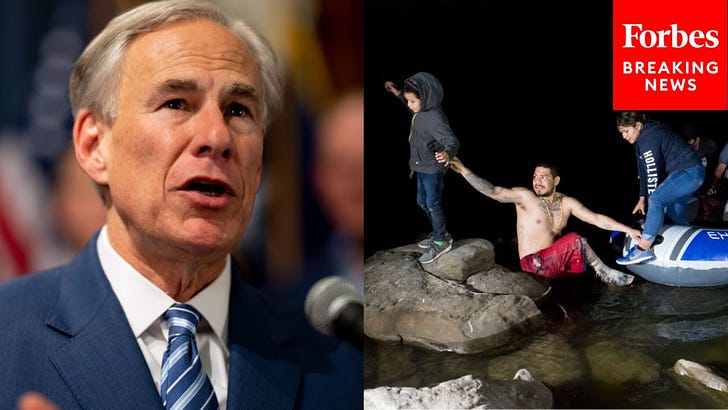A Facebook post by Neil Purcell, a former blogging partner of mine at The Blue Voice, reminded me of what the Jewish scholar Abraham Heschel had to say about the Hebrew prophets conception of justice in his book, The Prophets: An Introduction.1
Heschel stressed that for the Hebrew prophets, justice was not a matter of the equal rule of law. He quotes Reinhold Niebuhr (from his book Pious and Secular America): "Justice [for the prophets] was not equal justice but a bias in favor of the poor. Justice always leaned toward mercy for the widows and the orphans."
Somebody should explain this to Texas Gov. Greg Abbott whose Christian nationalist brand of "justice" involves tossing little children into the Rio Grande to drown.2
Isn't that what the evil Pharoah did to the children of the Hebrew slaves in Egypt?
Pharoah Abbott3:
Heschel writes:
What is uppermost in the prophets' mind is not justice, “an ideal relation or static condition or set of perceptual standards,” [Edmond Cahn] but the presence of oppression and corruption. The urgency of justice [for the prophets] was an urgency of aiding and saving the victims of oppression." [my emphasis]
Jayne Svenungsson argues:
Justice, as understood by the prophets, transcends existing political, judicial and cultic orders. This means an unwillingness to assign transhistorical authority to any worldly institution or social order. Looking back at history, but also at contemporary societies, it is difficult to overstate the value of this notion. Not only does it include an awareness that existing social and cultural security, where such exists, should never be taken for granted. It also offers an incentive to criticize, protest and perhaps even overthrow corrupt and unjust social orders. Conceiving of justice as transcendent, in other words, fosters a belief that oppression can be abolished and that opposition warrants the effort, a belief that has shown its cogency throughout history, from the Jewish people’s self-understanding and capacity to endure a wide range of modes of historical oppression, to the many forms of liberation theologies within both Jewish and Christian contexts.4 [my emphasis]
Heschel, Abraham (1962): The Prophets: An Introduction (paperback edition), 201-204. New York: Harper & Row.,
Wermund, Benjamin (2023): Texas troopers told to push children into Rio Grande, deny water to migrants, records say. Houston Chronicle 07/21/2023. <https://www.houstonchronicle.com/politics/texas/article/border-trooper-migrants-wire-18205076.php> (Accessed: 2023-31-07).
'Push Small Children... Into The Rio Grande': Garcia Slams Gov. Abbott Over Alleged Trooper Conduct. Forbes Breaking News YouTube channel 07/19/2023. (Accessed: 2023-21-07).
Svenungsson, Jayne (2017). Justice in the Prophetic Tradition. Eco-Ethica 6, 135-149. <https://lucris.lub.lu.se/ws/portalfiles/portal/33049782/Justice_EcoEthica17.pdf> (Accessed: 2023-31-07).


